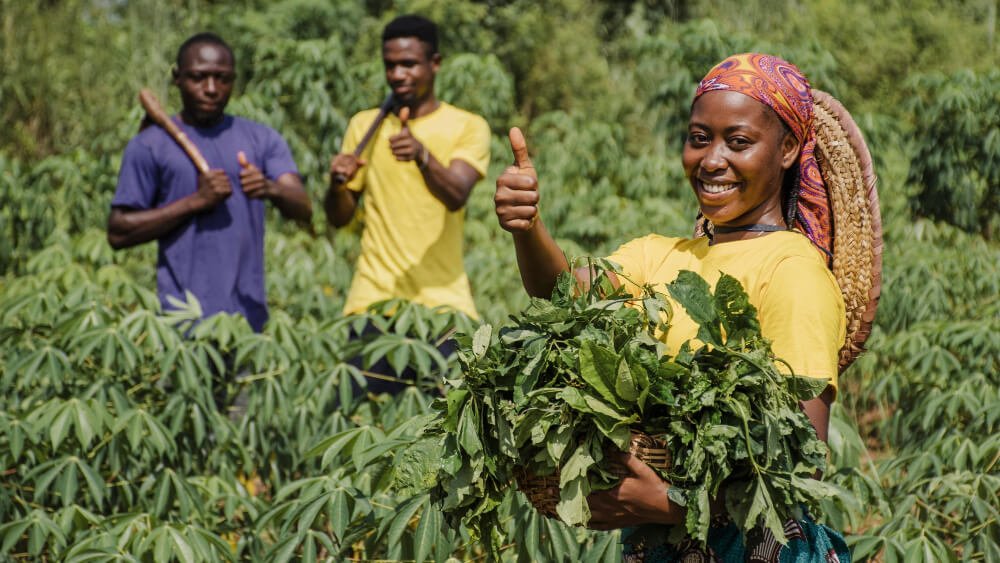Small Scale Farming in Uganda
If you take a scroll through many villages in Uganda, it won’t take long before you spot someone tending to their garden or feeding some birds f some kind. In fact, going to the village here is characterized with farming and eating fruits… climbing trees for the fruit and early morning farm work.
It’s our way of life, for some small income, for food, small scale farming is a major part of Uganda’s economy because quite frankly, almost everyone one here is a small-scale farmer in one way or the other. That said, what exactly do you understand by the term “small-scale farming” and how does one get started?
Small scale farming, also known as subsistence farming…or as I like to call it, family farming basically involves cultivating crops or raising animals on a relatively small piece of land. This is greatly because the main purpose of this kind of farming is to feed the participating family, with the surplus sold off for some income. One of its characteristics is that it relies on the family for labor, basic tools and natural.
For us Ugandans, this is our go to practice. Maize and beans in the backyard, some goats grazing in the fields and some chicken in a makeshift shelter.
Why should someone consider small scale farming?
Well, everyone has their reasons, making land useful, pas-time, some people just enjoy raising animals and having a garden. For the most part though:
Food security. Food in Uganda can sometimes go scarce. The economy changes, prices go high so growing your own food means you have a backup and are less likely to go hungry. It also brings in a sense of self-sufficiency, in that you rely on your farm for vegetables, eggs, milk or meat without depending on the market.
Income generation. Selling surplus produce brings in some income. In the rural areas, selling surplus food is a major source of income and wellbeing. Some even barter with neighbors for variety.
And it’s manageable to start. Vegetable for instance. They grow quickly, don’t require large space and can easily be sold in local markets.
Thinks like Sukuma Wiki (Callard greens) grow and are ready to harvest in about 4-6 weeks. Tomatoes, always in high demand and take around 2-3 months to mature. Spinach, fast-growing and easy to manage. Cabbage, you will always find cabbage at the markets.
Tips for vegetable farming.
Start small. Begin with something small to learn the basics and minimize losses in that initial starting phase.
Make some research. Don’t just buy seedlings and start on impulse. Make some research on farming best practices for that particular item you are trying to grow. Common pests, how to control them so that you minimize loses and regrets.
Harvest regularly. Pick the produce as soon as it’s ready to encourage continuous growth and also to prevent it from going bad or being eaten by other animals…not to mention theft.
If crops are not your thing, poultry farming can be an alternative. Demand for chicken and eggs has always been high. Every celebration demands chicken, roadside chips and chicken stalls are a steady market so it is a notable venture.
Why start poultry farming?
Quick returns. Chicken matures quickly if you target these new breeds. You can start collecting eggs in a short time and even meat. With broilers, layers you guaranteed returns in both eggs and meat.
The high demand too makes poultry farming a lucrative venture. what you need to know before starting a poultry farm in Uganda.
While small scale farming has its benefits, it too has its shortcomings. Some of the challenges associated with small scale farming include;
Unpredictable weather. Rain patterns have become unreliable which has affected farming activities. Small scale farmers usually lack specialized systems like irrigation to support plating all year round, this has made small scale farming more of a gamble to today’s farmer.
Pests and diseases, without proper control measures can destroy the entire farm. Delicate plants like tomatoes require proper research and care to keep them alive, otherwise one stands risk of losing their entire farm.
Lack of capital. While true that small-sale farming is usually for the family and by the family, there is still need for some capital. Starting and maintaining a farm requires funding for seeds and breeds, tools fertilizers which some might find a hard time collecting.
Limited market access. Many farmers often find themselves st4ruggling to find consistent buyers for their produce.
Land shortages. In urban areas, finding land for farming is an absolute hustle. Land is expensive, and much of it is no longer suitable for farming with the noise pollution and all the characteristics of urban areas. Rural land that would be better suited for this is too remote in most cases with limited amenities and infrastructure like transport routes.
Still, small scale farming remains a rewarding venture for those that have tried it. It is a staple activity in Uganda. We learn as we go, we ask help where investments go wrong and hope that our small-scale farms grow into something bigger.
check out our article on Uganda’s Agribusiness for more on Uganda’s farming scene.




